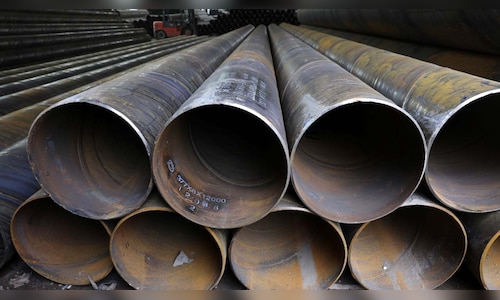The new measure, according to a notification from the Ministry of Finance, is designed to protect domestic manufacturers from the adverse effects of subsidized imports.
Details of the decision
The countervailing duty is a result of an anti-dumping investigation by the Directorate General of Trade Measures (DGTR), Moneycontrol reported.
The investigation, launched in response to complaints from industry associations such as Stainless Steel The Pipe and Tube Manufacturers Association and regional groups from South India and Haryana revealed that these products were being exported to India at prices below their production costs due to subsidies.
“The big problem is that China is selling steel at prices that are losing money, which is affecting the global industry,” TV Narendran, Managing Director and CEO, Tata Steel“We must not allow them to export their problems to us,” he said on Wednesday, September 11, at the AIMA National Management Convention.
Government and industry responses
The Indian government’s decision is aimed at protecting local manufacturers by creating a more level playing field. Officials have assured that while the new tariff will increase the cost of imports, it will not significantly affect the availability of these products in the Indian market.
Last week, Union Steel Minister HD Kumaraswamy He proposed to increase import tariffs on steel from the current 7.5% to 10-12% to further combat dumping practices.
Commerce and Industry Minister Piyush Goyal also… Discussions were proposed on a border adjustment tax to promote sustainable manufacturing practices.
However, the government’s protective stance contrasts with that of industry leaders. Calls for easing restrictions on foreign direct investment (FDI)particularly those affecting Chinese investments.
Since 2020, India has required prior government approval for foreign direct investment from countries with land borders, including China, amid geopolitical tensions. Many industry players argue that relaxing these restrictions could attract essential investments and boost economic growth.
Sources indicate that while there is considerable industry support for easing foreign direct investment rules, internal disagreements within the government persist. Some ministries remain opposed to changing the current investment framework, reflecting a complex balance between protecting domestic industries and encouraging foreign investment.
Market impact
The imposition of the countervailing duty is expected to have significant implications for the steel industry, with Jindal stainless steel and other domestic producers who are likely to benefit from reduced competition from subsidized imports.
Jindal Stainless shares fell 1.2% to ₹733.90 per share at 2:12 PM IST.
Disclaimer:
The information contained in this post is for general information purposes only. We make no representations or warranties of any kind, express or implied, about the completeness, accuracy, reliability, suitability or availability with respect to the website or the information, products, services, or related graphics contained on the post for any purpose.
We respect the intellectual property rights of content creators. If you are the owner of any material featured on our website and have concerns about its use, please contact us. We are committed to addressing any copyright issues promptly and will remove any material within 2 days of receiving a request from the rightful owner.

